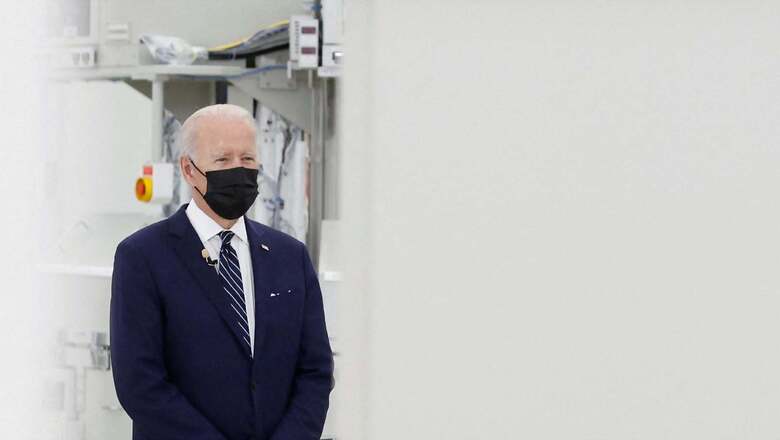
views
The US president Joe Biden is expected to unveil the Indo-Pacific Economic Framework (IPEF) next week when he visits Tokyo for meeting prime minister Fumio Kishida and prime ministers of QUAD nations.
The IPEF is the Biden administration’s tool to grow its trade footprint in the Indo-Pacific after former US president Donald Trump withdrew from the Trans-Pacific Partnership, a 12-nation deal, in 2017.
The IPEF unlike the Comprehensive and Progressive Agreement for Trans-Pacific Partnership (CPTPP) and the Regional Comprehensive Economic Partnership (RCEP) does not offer tariff cuts and other market-access tools.
It will focus on fair and resilient trade, supply chain resilience, infrastructure, clean energy and decarbonization and tax and anti-corruption.
The IPEF is also cautious of not angering American voters as the Trump-era rhetoric surrounding outsourcing and market access continues to appeal to a section of voters.
The Biden administration, like the Trump administration before it, believes that uninhibited trade liberalization hurts the American worker.
The Biden administration’s foreign policy also aims to serve the middle class and allow ordinary Americans to receive the benefits of US diplomacy and the IPEF helps in that objective as allows Americans to access the benefits that this trade partnership brings but also to some extent cushions US citizens from the disadvantages that come with trade liberalization, according to a report by Nikkei.
Hence, the IPEF, as said above, remains a tool to counter China, which has firmly established itself as a reliable partner in the 11-member CPTPP and the RCEP. It is bringing to the Indo-Pacific an economic component of the US, which until now was too focused on security.
Nikkei Asia in a report quoted Jayant Menon, a senior fellow at ISEAS-Yusof Ishak Institute, who said that the IPEF aim to increase supply chain resilience could be disguised measure to push China out of supply chains and thus disrupting the ASEAN network.
A report by Financial Times stated that the Biden administration toned down the language of the IPEF draft to attract more East Asian nations.
Which Nations Are Likely To Join?
A report by ThePrint said that India is likely to join the IPEF with the US. Japan welcomed the framework and Thailand earlier this week said that it would be part of the IPEF. South Korea, Singapore and the Philippines also have shown interest (however, it is unlikely that it will have any effect on China’s ties with Marcos Jr., Philippines new president, who is pro-Beijing).
ASEAN member Vietnam questioned the IPEF’s concrete elements and Vietnamese prime minister Pham Minh Chinh said that his administration will ‘discuss and clarify what these pillars entail’.
(with inputs from The Financial Times, ThePrint and Nikkei Asia)
Read all the Latest News here















Comments
0 comment